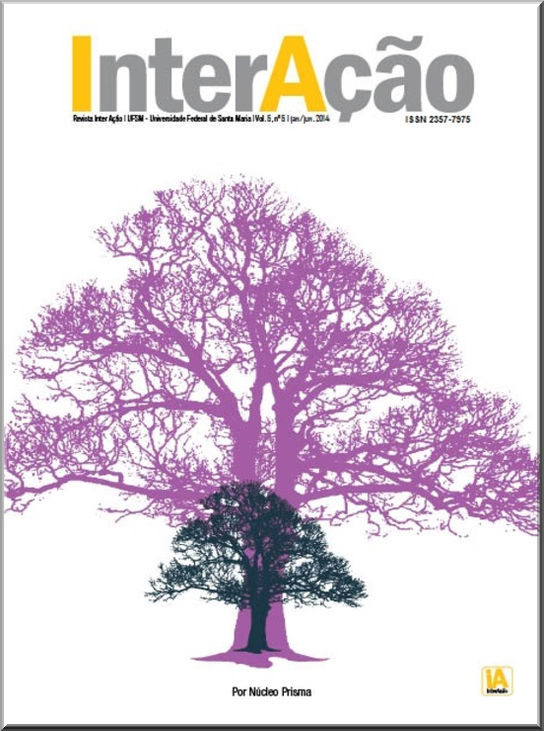A Política Externa Turca sob o AKP
DOI:
https://doi.org/10.5902/2357797513787Keywords:
AKP, Turkey, Foreign PolicyAbstract
Turkey has undergone great changes over the last decade when it comes to its foreign policy, since the Development and Justice Party (AKP) came to power. Based on the “Theory of Strategic Depth”, developed by Ahmet Davutoğlu, the party has tried to shift the main aspects of Turkish diplomacy, which has always been structured around an alliance with the US, despite some minor detours. Drawing on the study of the specialized literature, of official statements and economic data, this article discusses the modifications of Turkey’s international relations, stressing its regional components. This article aims, therefore, to analyze the causes resulting from changes in the international system and the Turkish economy that may have allowed that strategic reorientation. This research becomes extremely important insofar as the great powers’ struggle for dominance in the Middle East, Caucasus and Central Asia intensifies. These regions are considered by the Turkish leadership as the ones where their country is supposed to play a major role.Downloads
References
AKKOYUNLU, Seyma. Turkey in the Caspian Sea Region. University of Central Florida, 2008.
ALESSANDRI, Emiliano. “The New Turkish Foreign Policy and the Future of Turkey-EU Relations”. In: Instituto Affari Internazionali. Documenti IAI, 2010.
ARAS, Bulent. “Turkey and the Palestinian Question”. In: Foundation for Political Economic and Social Research, Brief n. 27, 2009.
ARAS, Bulent; AKPINAR, Pinar. “The Relations Between Turkey and the Caucasus”. In: Perceptions, v. 16, n. 3, 2011.
AYHAN, Veysel. “Turkey-Lebanon Relations: Perceptions of Turkey Among the Religious and Sectarian Factions in Lebanon”. In: Center for Middle Eastern Strategic Studies, Report nº 5, 2009.
BARAN, Zeyno et al. “Turkey’s Identity and Strategy: A Game of Tri-Dimensional Chess”. In: Power and Principles: International Leadership in a Shrinking World, 2008.
BARKEY, Henri. Turkish Foreign Policy and the Middle East. Ceri Strategic Papers, Sciences Po, n. 10, 2011.
BURUK, BEGÜM. “The Role of the Military in Turkish Politics: To Guard Whom and From What?” In: European Journal of Economic and Political Science, v. 4, n. 1, 2011.
CARLEY, Patricia et al. “Greek-Turkish Relations and U.S. Foreign Policy”. In: United States Institute of Peace, 1997.
ÇELIK, Aliye; ÇELIK, Laura. “Turkey: Current and Future Political, Economic and Security Trends”. In: Canadian Defense & Foreign Affairs Institute, 2012.
DICLE, Betul. Factors Driving Turkish Foreign Policy, 2008.
EFEGIL, Ertan. “Rationality Question of Turkey’s Central Asia Policy”. In: Bilgi, v. 19, n. 2, 2009.
EISSLER, Eric R. “Regional Energy Security: Turkey´s Ambition to Become a Regional Energy Hub”. In: Reserch Turkey, 2012.
ERTUĞRUL, Dogan. “A Test for Turkey’s Foreign Policy: The Syrian Crisis”. In: TESEV Foreign Policy Programme, 2012.
GOKSEL, Nigar. “Turkey and Azerbaijan: Passion, Principle or Pragmatism?” In: The German Marshall Fund of the United States, 2009.
KINNANDER, Elin. The Turkish-Iranian Gas Relationship: Politically Succesful, Commercially Problematic. Oxford Institute for Energy Studies, n. 38, 2010.
LINDENSTRAUSS, Galia; AKSOY, Furkan. “Turkey and Northern Iraq: Tightening Relations in a Volatile Environment”. In: Strategic Assessment, v. 15, n. 3, 2012.
NICHOL, Jim. Kazakhstan: Recent Developlments and U.S. Interests. Congressional Research Service, 2012.
ÖNIS, Zyia. The New Wave of Foreign Policy Activism in Turkey. DIIS Report, v.5, 2009.
ÖZTÜRK, Asiye. “Turkey: Europe’s Bridge to the Middle East”. In: Israel Journal of Foreign Affairs, v. 2, n.2, 2008.
RAHIGH-AGHSAN, Ali. “Turkey’s EU Quest and Political Cleavages under AKP”. In: Review of European Studies, v. 3, n. 1, 2011.
SAYARI, Sabri. “Turkish Foreign Policy in the Post-Cold War Era: The Challenges of Multi-Regionalism”. In: Journal of International Affairs, v. 54, n. 1, 2000.
TURAN, Ilter. Turkey and the Mediterranean: Balancing Geopolitics and Geo- Economics. Mediterranean Policy Program, 2011.
US NEWS. The Biggest Loser of Cairo’s Coup: Turkey. Disponível em: http://www.usnews.com/opinion/blogs/world-report/2013/07/18/turkeys-erdogan-is-in-a-bad-position-due-to-egypts-coup-against-morsi. Acesso em: 13 de setembro de 2013.
YEGIN, Mehmet; OZERTEM, Hasan. “Turkey-Iraq Relations: From Close Partners to Adversaries”. In: The German Marshall Fund of the United States, 2013.
ZAFAR, Shaista. “Turkey’s “Zero Problems with Neighbours’ Foreign Policy: Relations with Syria”. In: Journal of European Studies, 2012.
ZANOTTI, Jim. “Turkey: Background and U.S. Relations”. In: Congressional Research Service, 2012.







